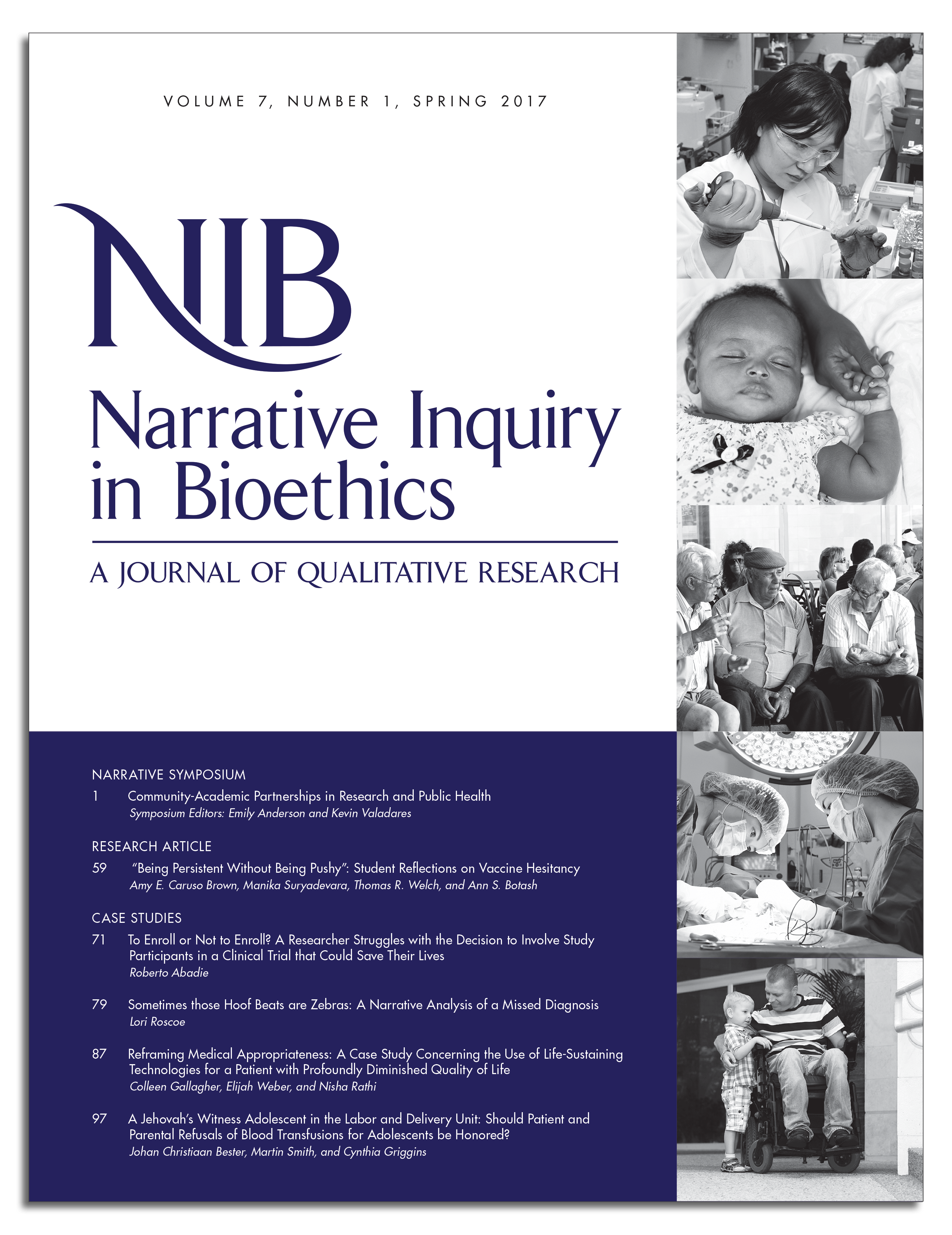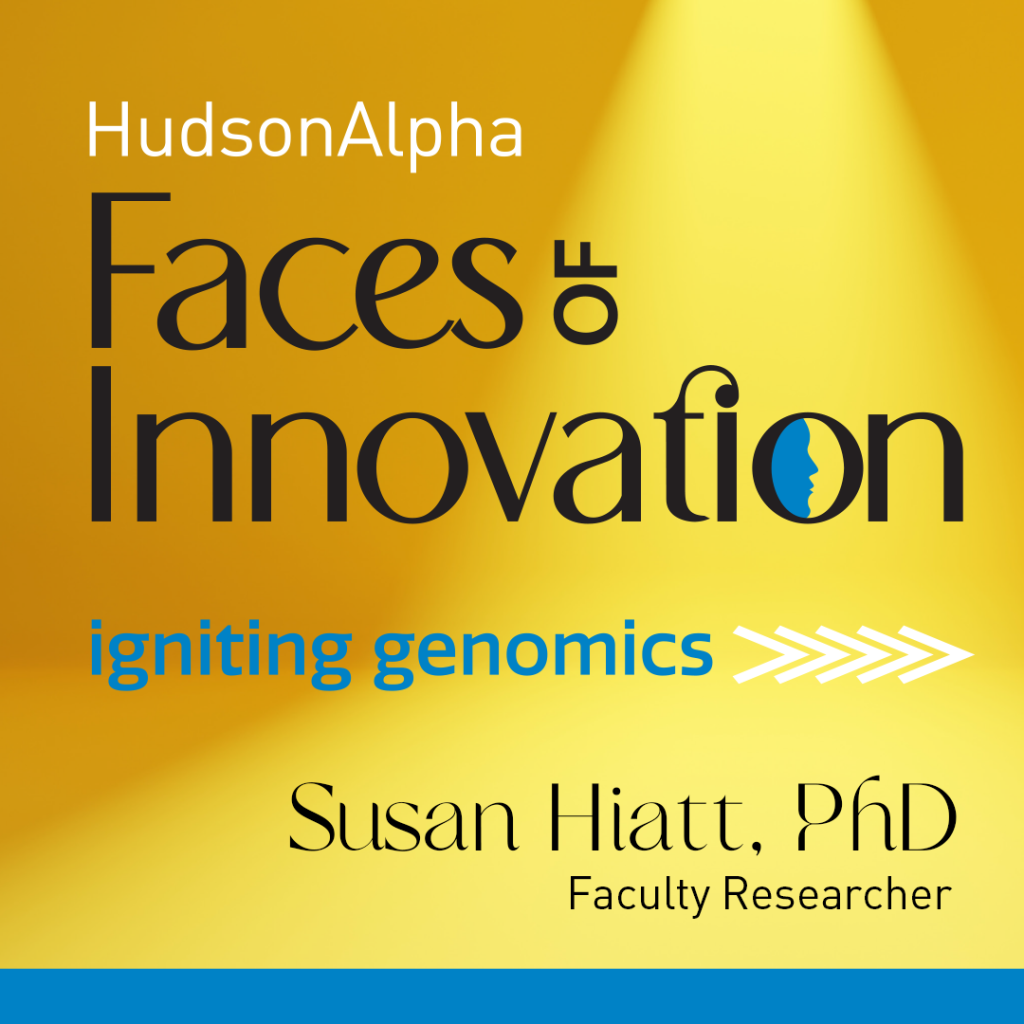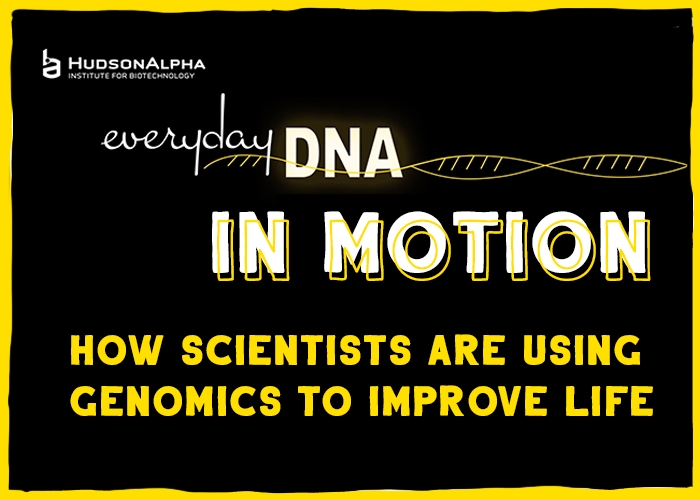Huntsville, Ala. – HudsonAlpha Faculty Investigator Thomas May, PhD, helped share the experiences of adopted people that would benefit from whole genome sequencing because of the gaps in their medical history. Adoptees often lack critical pieces of family medical background that would help them identify health risks, sometimes creating dangerous and even fatal blind spots. In a symposium assembled by May, who is also a research professor at the Washington State University Elson S. Floyd College of Medicine, and other researchers for the Summer 2018 edition of Narrative Inquiry in Bioethics, a group of adoptees and their families shared anecdotes from their lives to illustrate the human cost of gaps in family medical history.
 The narratives include a family mourning the loss of their adopted daughter, Niki, who suffered a number of symptoms that would have been diagnosed as breast cancer were she not 25 without family medical history. After months of diagnostic odyssey, a doctor ordered genetic testing, which revealed Niki carried the BRCA1 gene. When she passed away, her family had her daughter genetically tested. They found she had inherited BRCA1 from Niki. Now, informed by a more complete family medical history, she will start getting tested for breast cancer at 16.
The narratives include a family mourning the loss of their adopted daughter, Niki, who suffered a number of symptoms that would have been diagnosed as breast cancer were she not 25 without family medical history. After months of diagnostic odyssey, a doctor ordered genetic testing, which revealed Niki carried the BRCA1 gene. When she passed away, her family had her daughter genetically tested. They found she had inherited BRCA1 from Niki. Now, informed by a more complete family medical history, she will start getting tested for breast cancer at 16.
Other stories range from an adoptee who didn’t initially recognize symptoms of a mental health issue because they didn’t know it ran in their biological family to another that learned they had a brain aneurysm after their biological mother reconnected with them and informed them of the risk.
“There are clear economic benefits to providing whole genome sequencing for adoptees that lack family medical history,” said May. “But it’s important never to lose sight of the human impact. These are brothers and sisters, mothers and fathers, sons and daughters. Their stories drive that home over and over again.”
Along with adoptees, the paper argues that there are a variety of other people with gaps in their medical history that stand to benefit from more readily accessible genetic testing. They include children whose paternity is unknown, children of gamete donation and children from single-parent households. The Organization for Economic Cooperation and Development estimates that nearly one-third of children live in a household where at least one biological parent is missing.
In the paper, May expresses hope that the symposium of stories can serve as “a call for recognition of the importance of this emerging area of genomic research.”
About HudsonAlpha: HudsonAlpha Institute for Biotechnology is a nonprofit institute dedicated to developing and applying scientific advances to health, agriculture, learning, and commercialization. Opened in 2008, HudsonAlpha’s vision is to leverage the synergy between discovery, education, medicine, and economic development in genomic sciences to improve the human condition around the globe. The HudsonAlpha biotechnology campus consists of 152 acres nestled within Cummings Research Park, the nation’s second largest research park. The state-of-the-art facilities co-locate nonprofit scientific researchers with entrepreneurs and educators. HudsonAlpha has become a national and international leader in genetics and genomics research and biotech education and includes more than 30 diverse biotech companies on campus. To learn more about HudsonAlpha, visit hudsonalpha.org.
Media Contact:
Margetta Thomas
mthomas@hudsonalpha.org
256-327-0425


